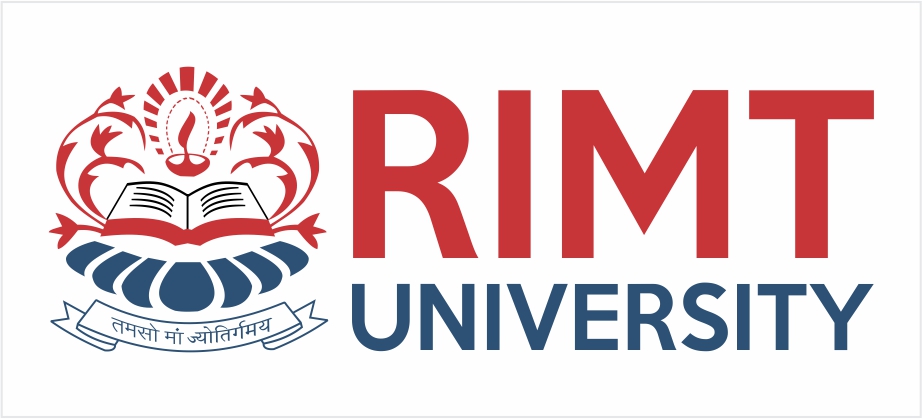About Programme
It is a post graduate physics programme and it is career orienting in nature. The course helps to train the innovative minds in the latest developments in physics as applicable in the field of modern inventions and discoveries. Masters of Science in Physics (M.Sc. Physics) provides you a chance to enhance your mathematical problem solving and critical thinking skills. These help students to understand scientific data. You will gather skills like numerical problem-solving, data analysis, and the communication of complex ideas. Along with this, you will a better understanding of how the world works on a scientific level.
Eligibility & Admission
Pass in B.Sc. with Physics.
| PROGRAM FEE | AMOUNT |
|---|---|
| Application Fee (One Time) | 1,000/-INR |
| Registration Fee (One Time) | 15,000/-INR |
| Security (One Time – Refundable) | 8,000/-INR |
| Semester Fee | 42,000/-INR |
Scholarship
| Marks in Graduation | Scholarship Per Semester | Applicable Fee After Scholarship Per Semester |
| 60% / 6CGPA and Above | 30% | 29,400/-INR |
| Disability Level | Scholarship Per Semester | Applicable Fee After Scholarship Per Semester |
| 90% & Above 90% | 30% | 29,400/-INR |
| 75% & Below 90% | 20% | 33,600/-INR |
| 50% & Below 75% | 10% | 37,800/-INR |
| Category | Scholarship Per Semester | Applicable Fee After Scholarship Per Semester |
| Wards of Param Veer Chakra | 30% | 29,400/-INR |
| Winners of Maha Veer Chakra | 20% | 33,600/-INR |
| Winners of Veer Chakra | 10% | 37,800/-INR |
| Work Tenure | Scholarship Per Semester | Applicable Fee After Scholarship Per Semester |
| More than 5 years continuous service | 30% | 29,400/-INR |
| 1 Year – 5 Years continuous Service | 20% | 33,600/-INR |
| Category | Scholarship Per Semester | Applicable Fee After Scholarship Per Semester |
| Single girl child | 20% | 33,600/-INR |
| Category | Scholarship Per Semester | Applicable Fee After Scholarship Per Semester |
| Parentless | 30% | 29,400/-INR |
| Either fatherless or motherless provided the annual family income is less than 2.5 lakh | 20% | 33,600/-INR |
Learning Outcomes
- The students will obtain good knowledge in Physical Sciences. They will be trained to compete national level tests like UGC-CSIR NET, JEST, GATE, etc., successfully.
- They will be prepared to take up challenges as globally competitive physicists/researchers in diverse areas of theoretical and experimental physics.
- They will be technically and analytically skilled enough to pursue their further studies.
- They will have a sense of academic and social ethics.
- They will be capable of taking up higher studies of interdisciplinary nature.
- They will be able to recognize the need for continuous learning and develop throughout for the professional career.
Programme USP
- Bringing theoretical knowledge of classrooms with practical skills development through workshops, training, project work etc.
- Updated and regularly evaluated course curriculum with emphasis on cutting edges technology and there practical and industrial application.
- Our teaching learning process provide student both weak and sharp equal opportunity to plan, access and improve his academic theoretical and practical skills.
- Highly educated faculty with strong alignment for research and development.
- Most of the faculties are Ph.D. holders.
Programme Education Objectives (PEOs)
- PEO1 To impart high quality education in Physical Sciences.
- PEO2 To prepare students to take up challenges as globally competitive physicists/researchers in diverse areas of theoretical and experimental physics.
- PEO3 To make the students technically and analytically skilled.
- PEO4 To provide opportunity of pursuing high end research as project work.
- PEO5 To give exposure to a vibrant academic ambience
Programme Outcomes (POs)
- PO1 Comprehend the adequate knowledge about the concepts, principles and tools required for effective scientific, social and economic skills which the students can apply in individual and professional life.
- PO2 Demonstrate high standards of actuarial ethical conduct, professional behavior, interpersonal and communication skills as well as a commitment to lifelong learning through pure and applied sciences.
- PO3 Apply and demonstrate the basic physics in environmental context for sustainable development.
- PO4 Be initiated into the basics of scientific and applied research which will be helpful for the students to generate employability.
- PO5 Attained the skills of observations and drawing logical inferences from the scientific experiments.
- PO6 Learnt the art of teaching and acquired the ability to deal with the students based on their individual differences in various classroom situations.
- PO7 Enhance and adopt new skills for future employability in teaching and research through seminar, internship.
Programme Specific Outcomes (PSOs)
- PSO1 Understanding the basic concepts of physics particularly in classical mechanics, quantum mechanics, electronics and solid state physics to appreciate how diverse phenomena observed in nature follow from a small set of fundamental laws.
- PSO2 Learn to carry out experiments in basic as well as certain advanced areas of physics such as nuclear physics, electronics and lasers.
- PSO3 A research-oriented learning that develops analytical and integrative problem solving approaches.
Career Prospects
Fundamental physics is a strong underpinning for careers in many branches of the physical sciences. M.Sc. Physics students can get jobs in Research labs (BARC, ISRO, DRDO etc), academic and education institution, atomic and space organization, meteorology departments, medical industry etc. They can also chose their career as Research Scientist, school teacher, Lecturer/professor, medical physicist, radiation physicist etc. Many aspects of computing and telecommunications require physics postgraduate. A degree in physics would open up avenues in scientific instrument manufacture, electronics and development of computer systems. Career opportunities also exist in UPPSC and other State and Central Govt. Services where knowledge of science subjects is required. Many IT companies such as Infosys, Wipro and CTS are recruiting M. Sc Physics graduates for software jobs. If anyone wants to pursue higher education after M.Sc, one can opt for Ph.D courses in Physics.
